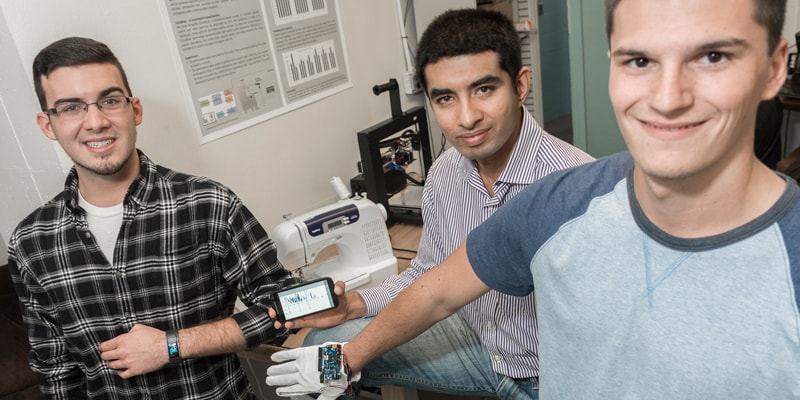
Furthering the sector of wearables that aid monitoring of medical irregularities, researchers from the University of Rhode Island (URI) College of Engineering, USA, are working on creating smart gloves, socks and other clothing items that will be capable of monitoring people suffering from Parkinson’s disease.
These wearable items are embedded with sensors, electronics and software that can collect data to be monitored by healthcare professionals. A team of students along with Director of University’s Wearable Biosensing Laboratory are working on developing gloves featuring sensors that detect tremors and rigidity that are the common symptoms of Parkinson’s. These gloves are connected to smartphones that can send data to neurologists for remote treatment, thus eliminating the need for stressful clinical visits, says an official statement on the University’s website.
Also Read – MAS Holdings partners with Flex for wearable technology
Kunal Mankodiya, Director of University’s Wearable Biosensing Laboratory elaborated, “Patients with Parkinson’s face many mobility issues in driving and even walking long distances. The glove will give patients the option of receiving health care while remaining at home, and it also reduces the risk of falls and other accidents.”
The Director is also working on sensor-embedded socks for patients who have suffered strokes that use the same technology. These socks can examine the walking stride and can quantify the movements of ankle joints and knees to find subtle irregularities that require therapy.
URI’s College of Engineering in Advanced Functional Fabrics of America, is a federally-funded organization based at the Massachusetts Institute of Technology which is a partnership between industry and academia. This partnership aids a manufacturing revolution by turning traditional fibres, yarns and fabrics into high-tech devices. Funds for the smart gloves project were provided through National Science Foundation grants.






